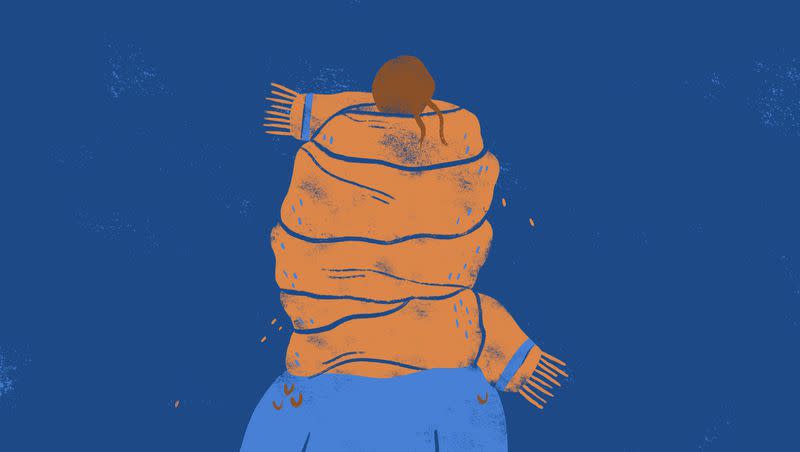What to know about seasonal depression

Seasonal affective disorder, or SAD for short, is commonly called seasonal depression. With shorter days and longer nights, it’s about this time of year when it can start to take hold of people.
“Seasonal affective disorder is absolutely real,” Jenny Howe, a psychologist and owner of Jenny Howe Consulting, told Deseret News in an email.
About 5% of adults in the United States experience SAD, which can affect a person for almost five months out of the year, per the American Psychiatric Association.
Related
What is seasonal depression?
The latest version of the Diagnostic and Statistical Manual of Mental Disorders — or DSM-5 — labels SAD as a type of major depressive disorder that occurs yearly around the same times or seasons.
When does seasonal depression hit the hardest?
While it’s possible for SAD to occur in summer and spring, it’s not nearly as common as in the months when the sunlight is not as bright and the days aren’t as long compared to the rest of the year.
The “season” in “seasonal depression” marks the condition as most commonly affecting people in late fall into winter — when light is not as abundant.
Scientists have found links to light and its effect on the body.
Why does seasonal depression hit so hard?
Howe said the way our bodies process light can affect our mental well-being.
“We process light neurologically as a tool for our circadian cycles,” said Howe.
Circadian rhythms are what our body uses to process the right time to be awake and to sleep, releasing different chemicals in the blood to act accordingly.
“When we lose access to that,” Howe said, “our natural rhythms of motivation, reward, reinforcement and sleep are impaired.”
What are the symptoms of seasonal illness?
The National Institute of Mental Health lists symptoms of seasonal affective disorder, which can include:
Oversleeping and fatigue.
Weight gain.
Craving carbohydrates.
Social avoidance.
Inattentiveness.
Feelings of hopelessness or feeling worthless.
All of which can affect self-confidence, per the institute.
Related
What should you do if you have seasonal depression?
Therapists can be valuable resources, offering cognitive and light therapy, and can prescribe antidepressant medications if necessary.
Light therapy is a treatment that has been proven to help some people, but not everyone, Howe said. Anyone can “manage light intake, outside time and sleep schedules,” to see what works best for them.
Howe suggests that accepting and acknowledging “that it is OK to move a little more slowly in the colder months” is also good practice.
“It may just be nature’s way of allowing us to slow down and breathe,” Howe said.
What supplements combat seasonal affective disorder?
Supplements like vitamin D, melatonin, St. John’s wort or magnesium can help, but there still isn’t proven research on using them for seasonal depression, per Healthline.
